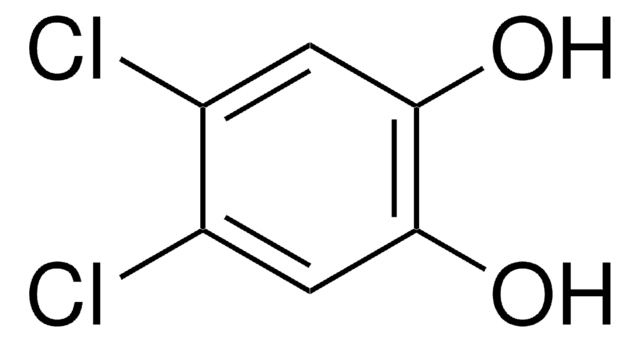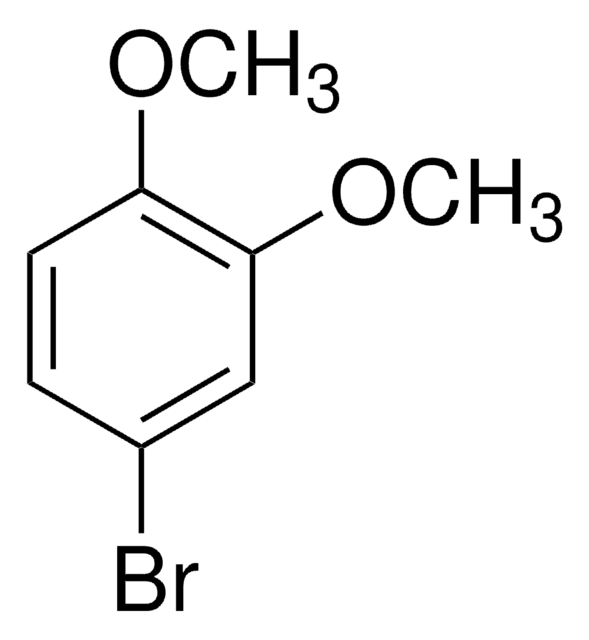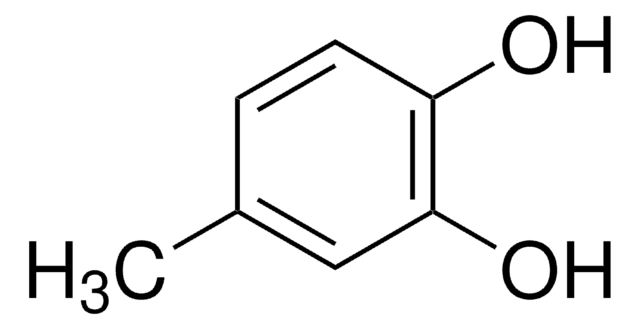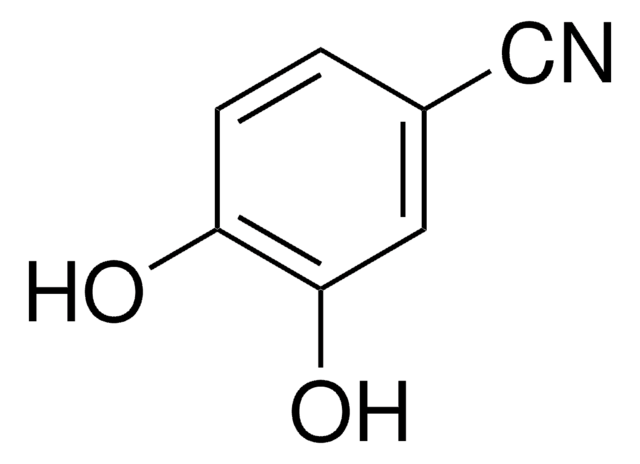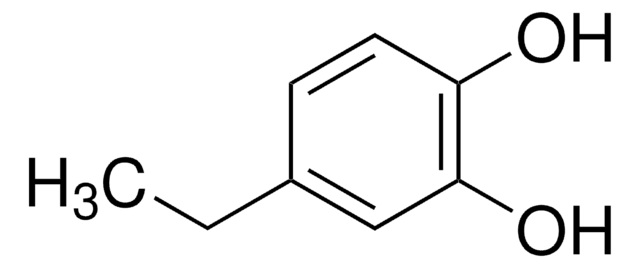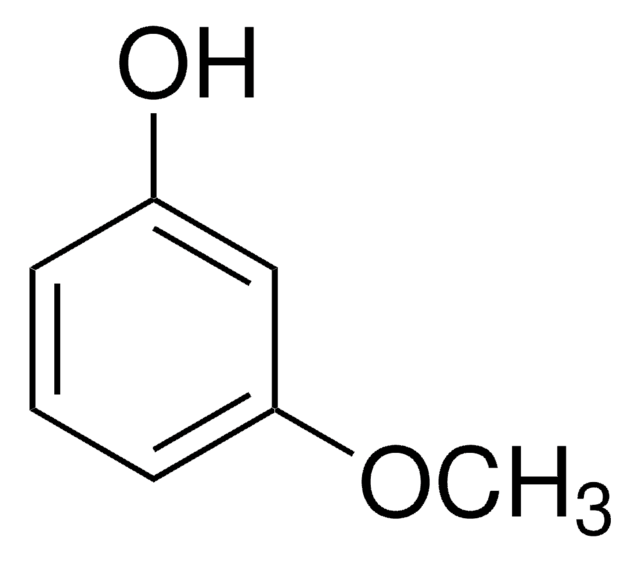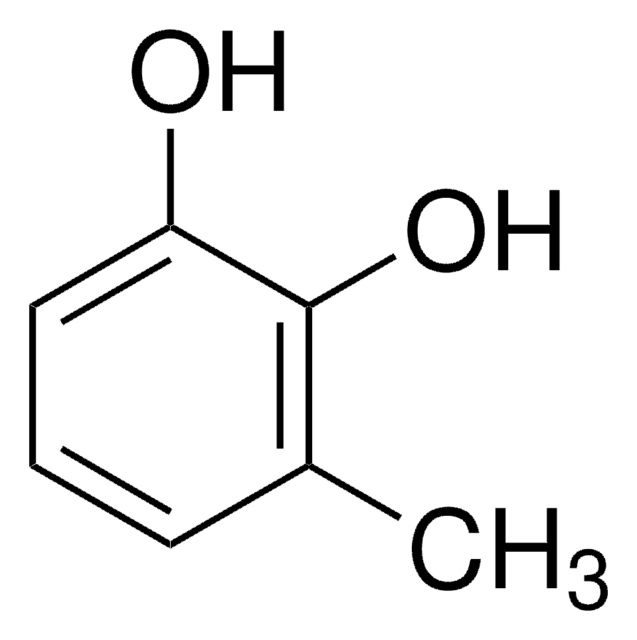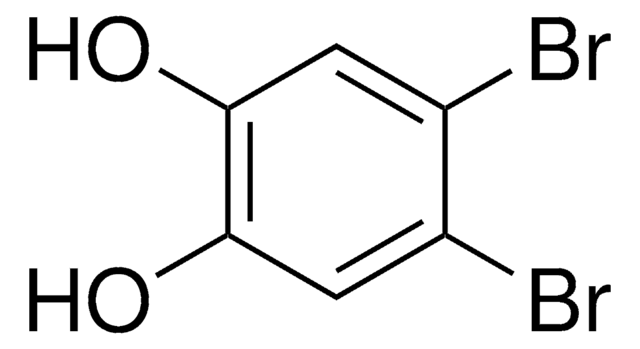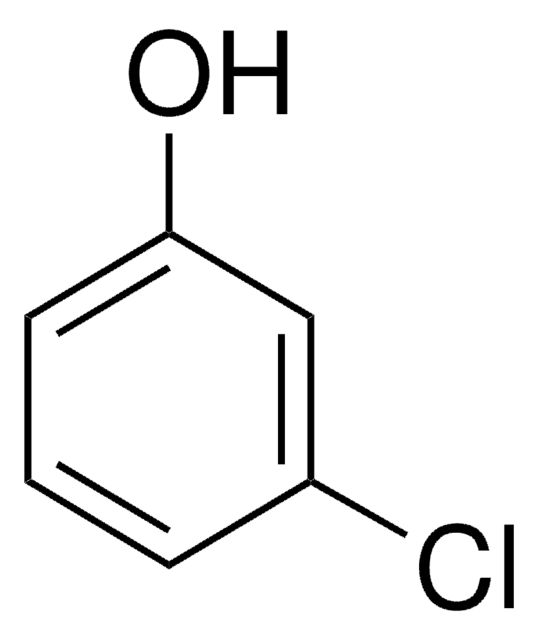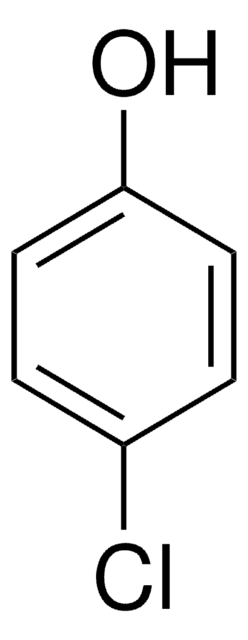おすすめの製品
品質水準
アッセイ
97%
mp
90-94 °C (lit.)
官能基
chloro
SMILES記法
Oc1ccc(Cl)cc1O
InChI
1S/C6H5ClO2/c7-4-1-2-5(8)6(9)3-4/h1-3,8-9H
InChI Key
WWOBYPKUYODHDG-UHFFFAOYSA-N
関連するカテゴリー
詳細
4-chlorocatechol was a major degradation product of 4-chloro-2-aminophenol (4C2AP). The degradation of 4-chlorocatechol was catalyzed by cphA-I enzyme.
シグナルワード
Danger
危険有害性情報
危険有害性の分類
Skin Corr. 1B
保管分類コード
8A - Combustible corrosive hazardous materials
WGK
WGK 3
引火点(°F)
Not applicable
引火点(℃)
Not applicable
個人用保護具 (PPE)
Eyeshields, Faceshields, Gloves, type P3 (EN 143) respirator cartridges
適用法令
試験研究用途を考慮した関連法令を主に挙げております。化学物質以外については、一部の情報のみ提供しています。 製品を安全かつ合法的に使用することは、使用者の義務です。最新情報により修正される場合があります。WEBの反映には時間を要することがあるため、適宜SDSをご参照ください。
Jan Code
148520-1G:
148520-BULK:
148520-VAR:
この製品を見ている人はこちらもチェック
Y Samet et al.
Journal of hazardous materials, 138(3), 614-619 (2006-07-18)
Electrochemical oxidation of 4-chloroguaiacol (4-CG) at Nb/PbO(2) anodes was studied under different experimental conditions such as initial concentration of substrate, electrolysis time, temperature and pH. We measured the concentrations of 4-chlorocatechol (4-CC), 2-methoxyhydroquinone (2-MHQ), maleic acid (MA) and carbon dioxide
X Guan et al.
Analytical chemistry, 72(11), 2423-2427 (2000-06-17)
A sensitive and selective sensing system for chlorocatechols (3-chlorocatechol and 4-chlorocatechol) was developed based on Pseudomonas putida bacteria harboring the plasmid pSMM50R-B'. In this plasmid, the regulatory protein of the clc operon, ClcR, controls the expression of the reporter enzyme
A Farrell et al.
Journal of industrial microbiology & biotechnology, 28(6), 316-324 (2002-05-29)
A bacterium, CP1, identified as Pseudomonas putida strain, was investigated for its ability to grow on and degrade mono-chlorophenols and phenols as sole carbon sources in aerobic shaking batch culture. The organism degraded up to 1.56 mM 2- and 3-chlorophenol
Pankaj Kumar Arora et al.
Environmental science and pollution research international, 21(3), 2298-2304 (2013-09-24)
Burkholderia sp. RKJ 800 utilized 4-chloro-2-aminophenol (4C2AP) as the sole carbon and energy source and degraded it with release of chloride and ammonium ions. The metabolic pathway of degradation of 4C2AP was studied and a novel intermediate, 4-chlorocatechol was identified
A Farrell et al.
Biodegradation, 10(5), 353-362 (2000-06-28)
A mixed microbial community, specially designed to degrade a wide range of substituted aromatic compounds, was examined for its ability to degrade mono-chlorophenols as sole carbon source in aerobic batch cultures. The mixed culture degraded 2-, 3-, and 4-chlorophenol (1.56
ライフサイエンス、有機合成、材料科学、クロマトグラフィー、分析など、あらゆる分野の研究に経験のあるメンバーがおります。.
製品に関するお問い合わせはこちら(テクニカルサービス)